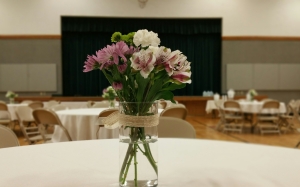No matter your religious beliefs or cultural point of view, I’ve always wanted this website to offer you ways to support your grieving friends. Some posts speak to specific topics of what to say (or not to say) when someone you know has suffered a loss. Others offer general insight into what is normal for one who is grieving. This one reaches into each of those areas.
First, I’d like to share this Easter- and grief-related post, Easter Admission: Gratitude, Grief, and Ambivalence, which I wrote for the Segullah literary blog.
For those not of my faith, please understand I’m not trying to impose my beliefs. Rather, I’m illustrating how — even for those with clear convictions — grieving can (and does) influence mourners long after the funeral, so long, in fact, that your friends might not seem like they “still” mourn. (More than seven years widowed, I no longer cry every day as I once did, but that doesn’t mean I don’t cry from time to time, even though my life has become full and fulfilling again.) 
Grieving is a complicated business. For some, faith simplifies the process — but not always.
In the earliest days (and by days I mean weeks, months, and even years) after my husband died, my faith offered me an anchor to hold when the ground beneath my feet turned to unpredictable tidal waves. In the long nights when I could no longer sleep, I often turned to scripture for comfort, guidance, and connection as I read of others’ great trials and how well they did (or didn’t) cope as they relied on God for deliverance or endurance. It helped me.
But it seldom helped when others told me how or why or that my faith (or theirs) should, could, or would help me.
At first, I didn’t understand why I bristled at others’ attempts to console me by their declarations of faith and doctrine. After all, I’d lived my whole life by relying on prayer and study and devotion. Why, now that I leaned upon it even more, did I resent others’ telling me to do so? In time, I figured out a few reasons.
Why should you think twice before urging mourners to have more faith or speak to them in faith-based clichés?
- I resented the implied message that if my faith were strong enough, my grief wouldn’t show up in ways that made those around me uncomfortable.
- If I believed fully, their attempted consolations implied, I wouldn’t need to grieve. I’d “get over it” sooner. (Note: Never say or imply one who has lost a loved one should “already” get over it.
- Those already feeling fragile in their faith may take your words as condemnation rather than support.
- Never, ever tell a grieving child (or parent, or anyone, for that matter) that God needed the deceased loved one more than they did.
- Do you really think the Almighty “needed” that individual more than the survivors needed their loved one?
- Do you really have the authority to speak for God?
- Never tell mourners that God — or the deceased — wouldn’t want them to be sad.
- Grief is a natural, even healthy, response to losing ones we love.
- Do you think the Almighty — or the one who died — would want loved ones kicking up their heels and saying, “Hooray!” about the death? (And if so, who authorized you as the spokesperson?)
- Many Old Testament stories depict prophets and others openly mourning their own and others’ losses; one of the New Testament’s most poignant verses states simply, “Jesus wept.”
- Never say, “She’s in a better place,” implying that all’s well because the loved one is now in heaven.
- Even if the mourners believe this, it’s up to them to state it.
- Sometimes grief and families’ lives behind closed doors is complicated. You might think the deceased was a saint, but the grieving family members might feel differently about their loved one’s eternal destination.
When and how is it appropriate to share faith-related comfort with mourners?
- When they ask for it.
- During discussions the bereaved initiate about faith and mourning.
- Limit your professions to what gives you comfort. For instance:
- RIGHT WAY: When my mother died, I found peace in reading from her Bible and studying the verses she’d outlined.
- WRONG WAY: You should study your mom’s Bible and see what she marked in it.
- RIGHT WAY: Sometimes, when I’m grieving, singing this hymn helps me feel better.
- WRONG WAY: You should sing this hymn if you’re feeling sad. Or, I’m going to sing you this hymn right now to make you feel better too.
What’s most important to remember when comforting grieving friends?
Be there. Listen. Show up. Remember. Ask to hear stories about the one who died — using their name. Express your awareness of their loss.




